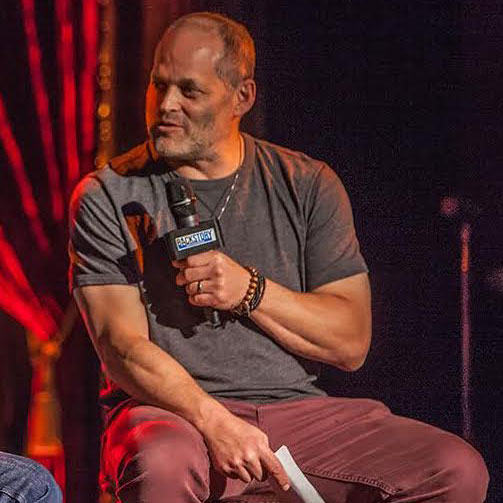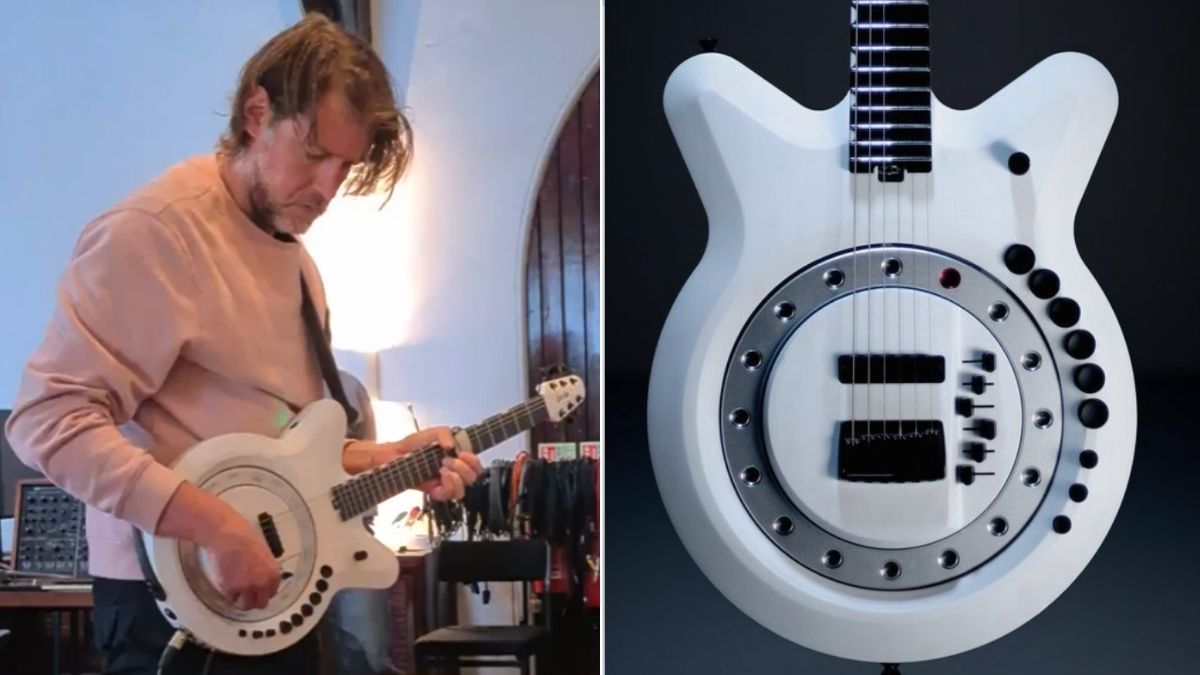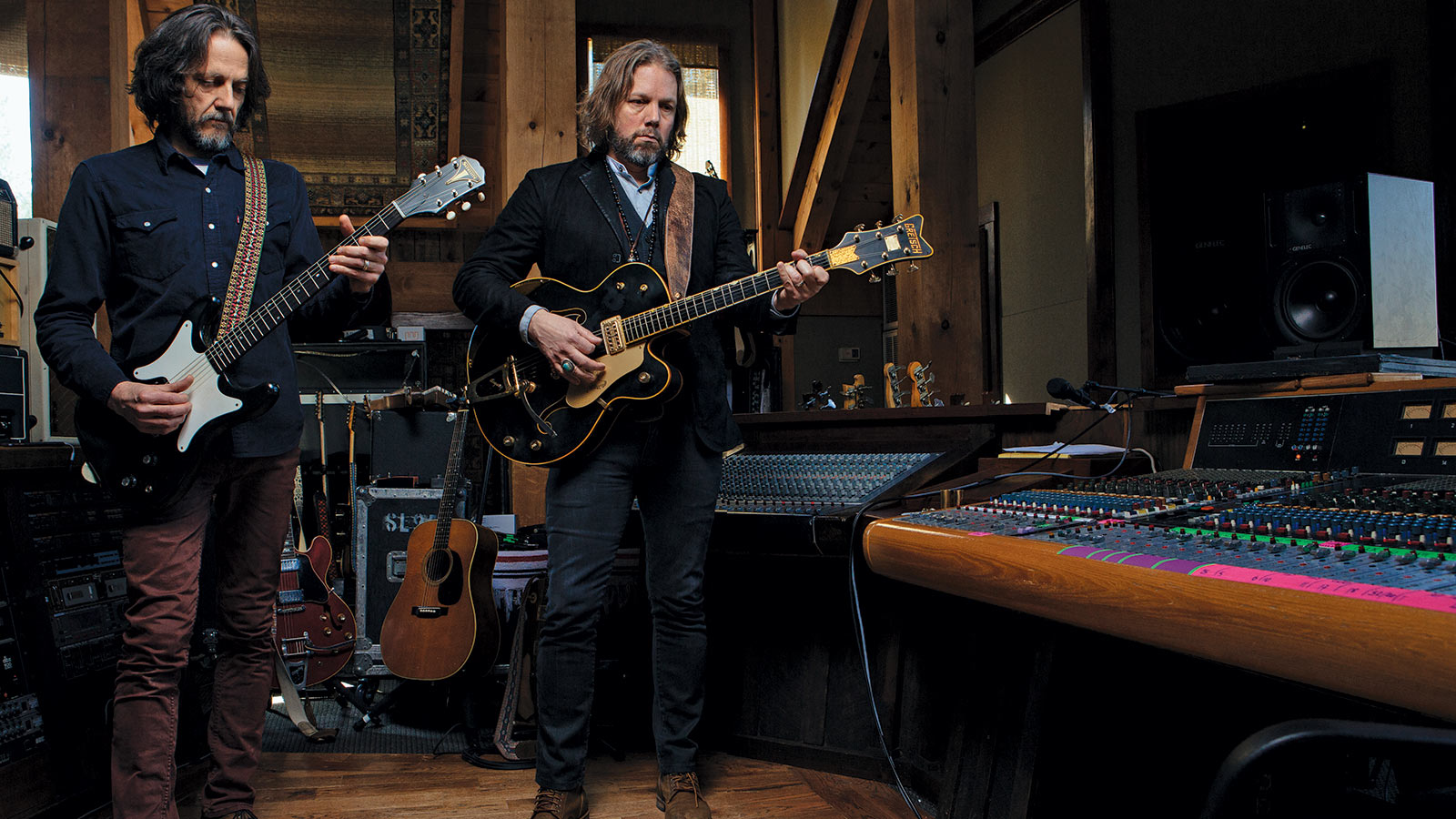
The Magpie Salute began in the summer of 2016 as a one-off mini Black Crowes reunion — when Rich Robinson invited guitarist Marc Ford and keyboardist Ed Harsch to supplement his solo band for a show in Woodstock, New York. It went so well that they booked more gigs, and when those were also a hit, the band officially launched—although sadly without Harsch, who passed away November 4, 2016, at age 59. Magpie released a self-titled live album culled from those initial shows, with one new original tune, “Omission,” cut in the studio. Then they hit the road as a 10-piece, playing plenty of Black Crowes covers.
All those gigs verified what they already knew from the first moments onstage together again: They had something special together. Robinson and Ford played together in the Black Crowes from 1992 to 1997 and again in 2005 and 2006. Magpie represented an opportunity to reacquaint themselves and further a musical bond that was always electrifying and is widely considered the Crowes’ peak. Now, the Crowes seem to truly be left behind, with Rich and his brother, Chris Robinson, feuding and moving on. Meanwhile, Magpie Salute have evolved into a truly new band, trimmed down to six players: Robinson, Ford, singer John Hogg, bassist Sven Pipien, drummer Joe Magistro and keyboardist Matt Slocum. Last winter, they entered a Nashville studio and cut 28 songs in about a month. That material has been divided into two albums, High Water I, released August 10, and High Water 2, which will follow.
Ford calls the Nashville sessions “the hardest-working party I’ve ever attended.”
“It was pretty ambitious,” adds Robinson. “We cut 28 songs in three weeks. It was a lot of work, but we were in such a good space. We were originally talking about a double album, but it was just too much. We decided to stagger it out and focus on one record at a time, which is really cool. We’re really happy about both records and where we are as a band.”
The 12 original songs on High Water I were written or co-written by Robinson, Ford and Hogg and stake out a wide range, with ringing open-tuned acoustics, crunching Gretsch Falcon riffs and stellar grooves. The music echoes the Crowes and all their influences — the Stones, the Faces, Humble Pie — while also establishing its own distinct sound, based around Hogg’s sturdy, soulful vocals and Robinson and Ford’s textured, intertwined guitars. You can hear throughout the album why the two guitarists were so happy to reunite and why so many Crowes fans rejoiced at the news that they’d be collaborating again.
Was it obvious which songs went together and how the two albums should shape up?
RICH ROBINSON: Yes. You line them all up, listen to them and it starts to fall together and speak to you. The second record is really cool, too, and maybe a little deeper, and this is a great bridge into it from where we started. There’s a really long story that’s being told musically and lyrically, and I like that.
All the latest guitar news, interviews, lessons, reviews, deals and more, direct to your inbox!
MARC FORD: If you listen to it, the music will tell you what needs to happen. Other things are just judgment calls for whoever’s in charge — and that’s Rich, who is the producer. This is Rich’s ball, and he’s allowing us to play with it, and it’s totally bitchin’!
Rich, all that being the case, was it difficult to make this project distinct from your solo bands? To make it more collaborative?
ROBINSON: No. But I don’t think of it like that. It’s never been my goal or desire to be the center of attention. I was more than happy to let Chris take that role. It made me uncomfortable and I just wanted to play and write music. My solo stuff was cool, but there was something missing. There were a lot of great things about it, but it was neat to have Marc come back and have John be the singer and have it be a full band. It feels more collaborative and like there was less pressure, even though I did put the whole thing together.
FORD: The guy’s got a vision, and it sounds how it does because of his choices. This is really his gig. He called me to join it and I’m really happy he did—and grateful to be a part of what is probably the best band I’ve ever been in. We’ve all lived through some shit and grown up a little so there’s a total lack of bullshit. We’ve lost enough to know we don’t have much to prove. It’s like we’ve fallen in love again. I can’t fake this thing I do.
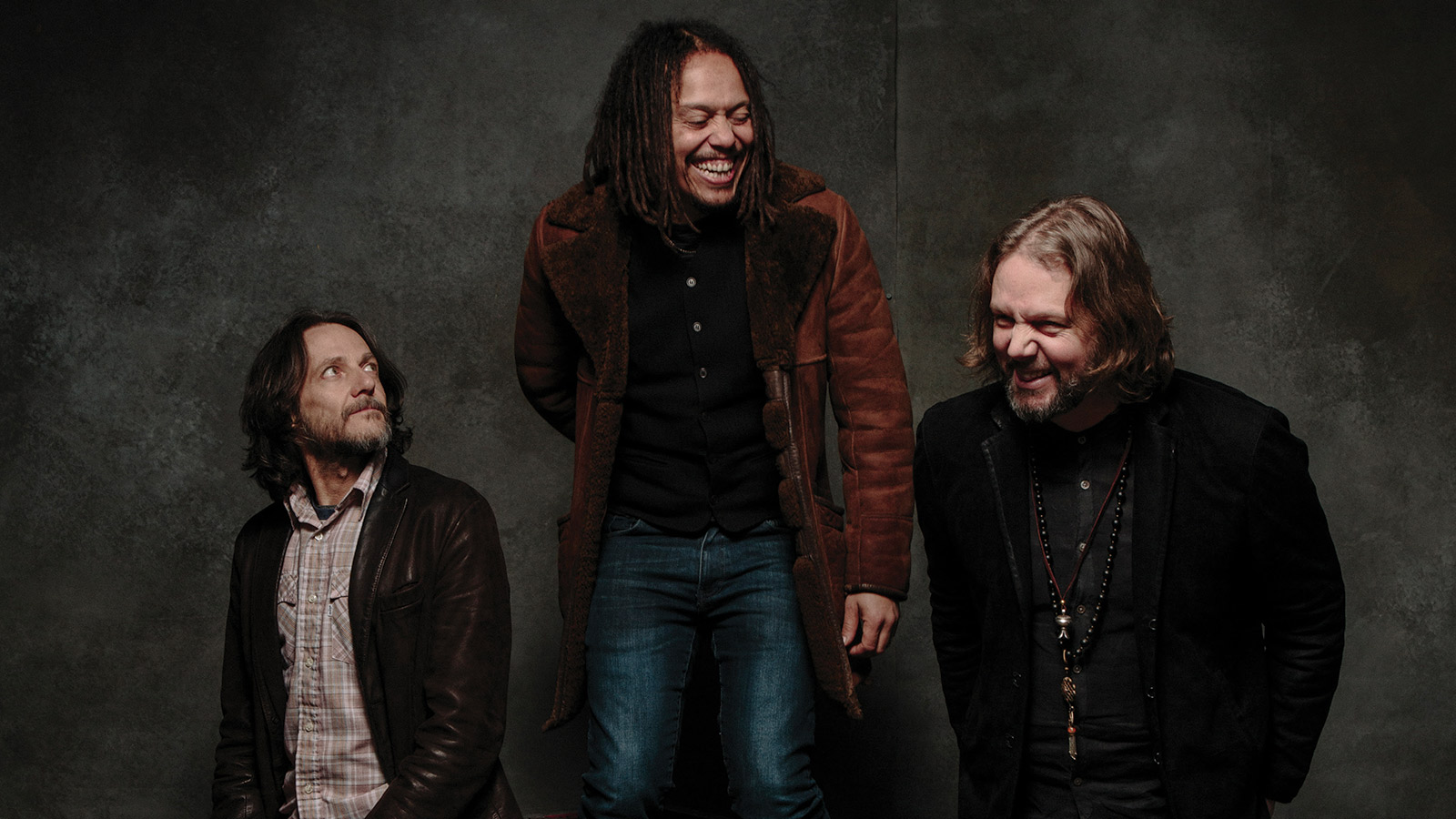
You were very productive, cutting two albums in less than a month. Did that stem from having all these shows under your belt before you started writing and recording in earnest?
ROBINSON: Yeah, probably. I’ve played with everyone in different configurations. Sven and Marc were in the Crowes, Sven was in the Crowes without Marc, Joe played percussion with the Crowes and was in my solo band. John was with me in Hookah Brown, and Matt was in my solo band. These are the people I musically connected with the most in each configuration I’ve played in over the last 28 years, and it was interesting to see how quickly and thoroughly we all gelled. I believe these are the finest musicians of all those years and bands.
FORD: There’s a kinship that’s really necessary in this music because it’s not based around theory; it’s a weird kinetic language, all feel and sensory perception. If Rich shares that language with one person, we’re all gonna understand it — because you have to be able to speak the language to play with Rich in the first place! Rich has slowly developed his world and language, and we’ve all been part of it. Beyond that, there’s just certain musicians that hear each other, because they’re like-personalities. There’s no rhyme or reason. Some people are at ease together, and you can be standing next to a brilliant guitarist who is an ass, and it just won’t work for more than a split second. Then you want to be done with it. We have a kinship and brotherhood.
ROBINSON: That’s the vibe that we levitated ourselves off of in the studio. Everyone was like, “Fuck, man, this is just great.” I think everyone left incredibly satisfied and happy about what we were doing. That enthusiasm carried us through the whole of the sessions and made hard work just easy and fun.
FORD: Music should be an expression of your life. I think I got turned around for a little while, where music dictated my life. Now we’ve all lived in enough situations where music became work and fucked up our lives, and we want to be in a place where we don’t have to sacrifice. It takes so much getting along to do this job. You live with each other constantly. We’re with each other more often than we are with our families, and the nature of how we get along comes out in the music. We don’t even have to look at each other. The conversation has gotten so non-verbal and non-visual with Rich and me that it’s bizarre. It’s like family.
ROBINSON: There’s a lot of different styles on the record, which is not unlike the Crowes. I’ve always written that way. I like a record to have depth and take you somewhere. I had 40 ideas when I got together with Marc and John. They also had material, and I didn’t want to take anything off the table. I wanted to just throw everything out there and start peeling back. The three of us got together and just started to write the record. And we did some stuff on the fly in the studio. The work dictates what the record’s going to be. I never go into a record with a definitive idea of what it should be. I have to get in there and feel it, and listen to it, and see how the whole thing unfolds. The amazing thing about music is that it always lets you know what it needs to be.
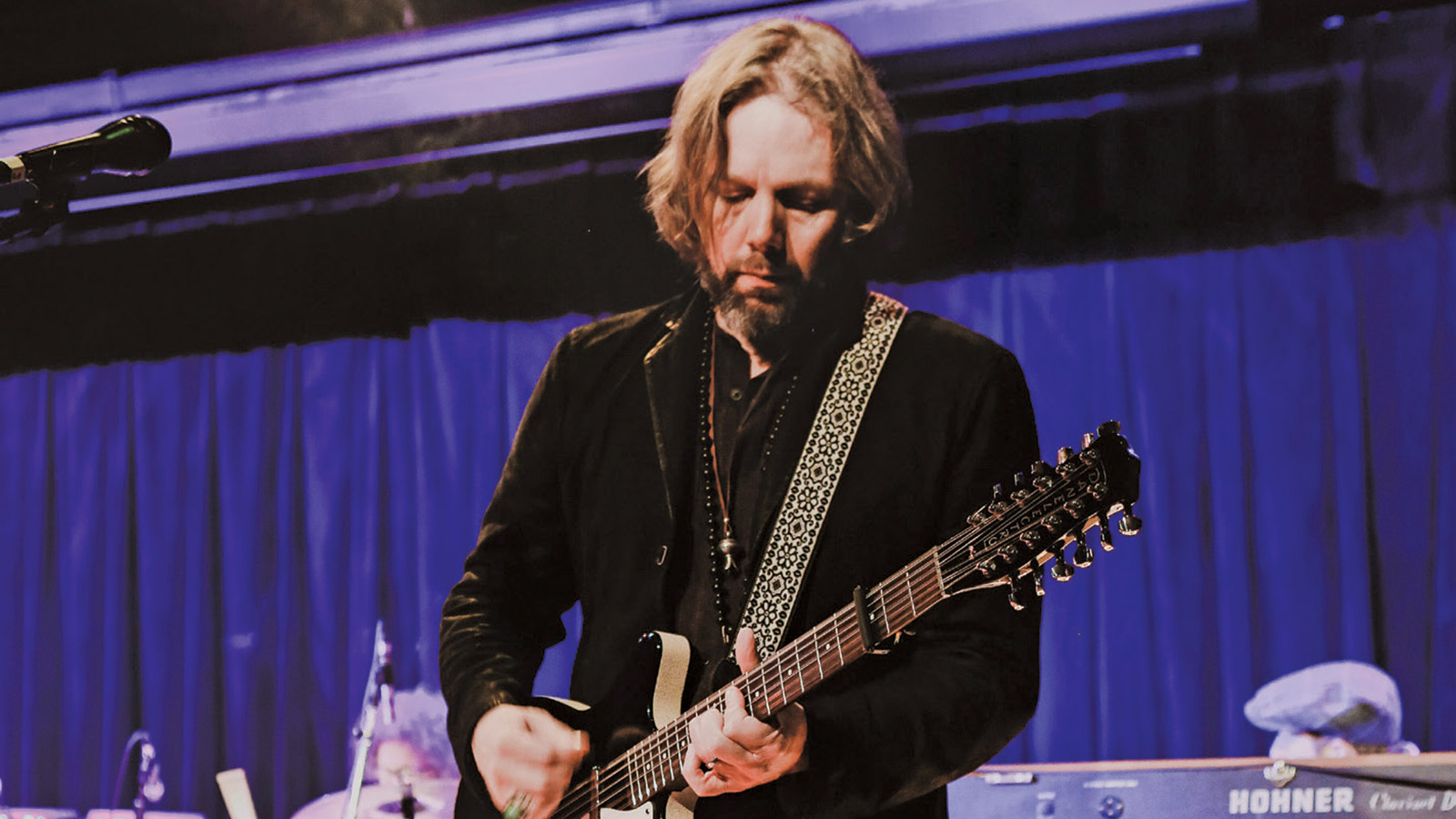
When you first got together, you could get pretty far on fans' excitement in seeing you guys reunited. Next time out, it’s not going to be the first time you're playing together again...
FORD: Yeah. Last year was celebratory of what we’ve done together in the past. And just saying, “This is so bitchin’!” Now it’s like, let’s just put away all the bullshit, get on with this thing and see what happens. Let’s see where we are and if anybody cares. And let’s just have a big party. It was great and gave us a sense of momentum going into recording this new music; during which we realized there’s truly a lot there, and we really care about it. It’s beyond any kind of nostalgia.
You guys went over a decade without playing together. Was there anything about one another’s playing that you appreciated more than you thought or that you had forgotten? Maybe an aspect you enjoyed that you had, sort of, forgotten just how much you'd enjoyed?
ROBINSON: It’s just the interplay; the way he rhythmically plays with me and intertwines with what I’m doing is just impossible to replicate. The two of us just have this thing that I can’t really describe, but it works so well with what I’m doing and how I write. We step off of what the other is playing, and it’s endlessly inspiring. Marc is such a brilliant player that, to me, it’s almost like when I was up there playing with Jimmy Page.
FORD: Rich writes beautifully and he’s far more complex than people really give him credit for. It’s in his name; he’s rich harmonically. There’s a lot going on in his chords and tunings. With one finger on an open G, all of those notes ringing together creates other notes, and it really goes beyond the realm of theory. I don’t think in notes. It’s a big dance and I try to find the song in the song and keep the dance going. There has to be a motion, and there has to be a song in it all the time. And if there isn’t one, you make one. It is more like painting when we’re up there. I think of sounds as colors.
ROBINSON: When Marc and I first started playing together in the Crowes, it was more of an adversarial relationship. I was a kid with all this early success to deal with, and it was all a swirl. It’s wonderful, now, to be out of that band’s negativity — to remove the negative filter, my brother, and to be in a positive setting, exploring our musical and personal relationships. Marc and I came into this band in a very open way, just allowing each other to be ourselves. It makes all the difference in the world and we’re really just getting to know each other now.
FORD: We’re all getting to meet each other for the first time for real. When we met, Rich was a kid driving a BMW and living in a brand-new house. I was a new guy coming in as Chris’ friend.
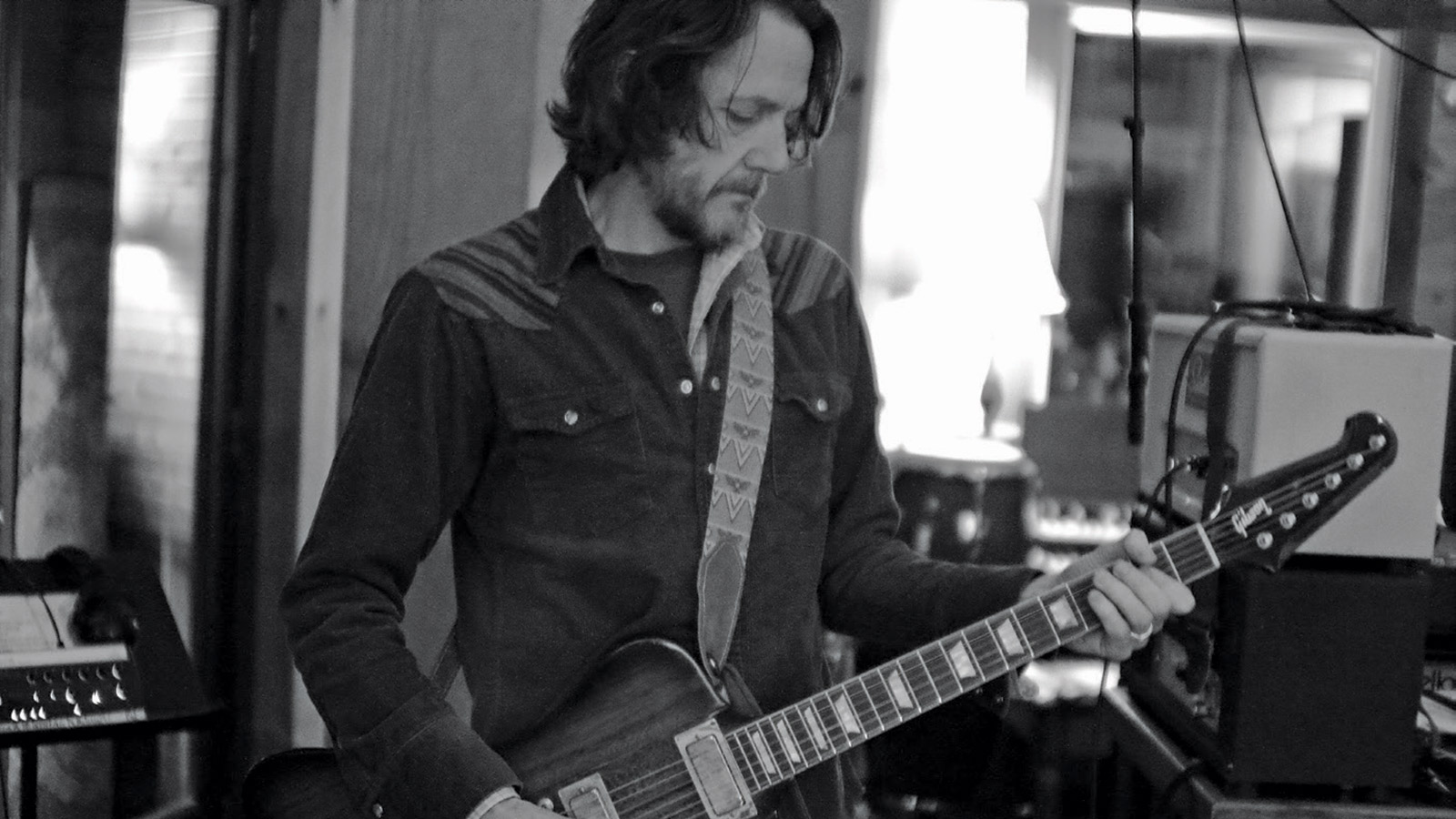
And that’s why your relationship was adversarial?
ROBINSON: The relationships in that band were just very unhealthy. I was Chris’ little brother and he made sure that attitude remained; even as our success grew and although I was writing songs and doing all this stuff. I was just a little brother, even to new people coming into the band. He would set up a dynamic to create an odd relationship between me and whoever was playing guitar. Marc came in as Chris’ friend and we didn’t really talk too much.
FORD: Rich always had his brother in the room, who we can all safely say needs quite a bit of attention in every situation and every relationship. In every room, in anything that pertains to anything, anywhere — it’s about him, and the whole band had to choose between the Robinson brothers. Like everybody else in and around the band, I had to get to know Rich over that hurdle.
ROBINSON: There was a lot of negativity coming my way from Chris, and I think it kind of colored everyone in that position, including Marc. I’m quiet, Chris is loud and he painted a picture of who he thinks I am, because he has no idea who I am and never did. He likes to paint an unflattering, uncool portrait of me because he wants all of the attention and credit. You can see it now. All last year, he talked about how I’m in a cover band, then he goes out and puts together a cover band [As the Crow Flies]. It’s just funny. I think he thought he knew more about me than he did and never bothered to ask. He just made a lot of assumptions, and that’s the way it was. But it is what it is, I’m fine with it. I’m happier now, being in this band, than I ever was. This is so much more rewarding. No one wants to go down that negative road. I just want to get out and play.
Even with that barrier in your relationship, you two had such a high level musical connection in the Crowes.
FORD: Well, music transcends words. Rich and I, on the one hand, don’t really know who each other are — yet we know each other better than I know anybody else. It comes out in this non-verbal, beautiful magical thing that I don’t want to try to explain. I just have to keep my dumb ass out of the way so that these things can live.
Will having this new material affect your set list and how much Crowes music you play? How are you going to balance that?
FORD: The old stuff is always old and the new stuff is revitalizing.
ROBINSON: I’m still working that out, but this music is our focus. Last year it was more about celebrating the Black Crowes and the bands we loved. This year it’s going to be more about the Magpie Salute and us. Although we’re still going to play some Crowes songs — they’re my songs and I’m going to play them — the focus of the sets is going to be the Magpie stuff.
Alan Paul is the author of four books, including Brothers and Sisters: The Allman Brothers Band and the Inside Story of the Album That Defined '70s as well as Texas Flood: The Inside Story of Stevie Ray Vaughan and One Way Out: The Inside Story of the Allman Brothers Band – both of which were both New York Times bestsellers – and Big in China: My Unlikely Adventures Raising a Family, Playing the Blues and Becoming a Star in Beijing, a memoir about raising a family in Beijing and forming a Chinese blues band that toured the nation. He’s been associated with Guitar World for 30 years, serving as managing editor from 1991 to 1996. He plays in two bands: Big in China and Friends of the Brothers (with Guitar World’s Andy Aledort).
